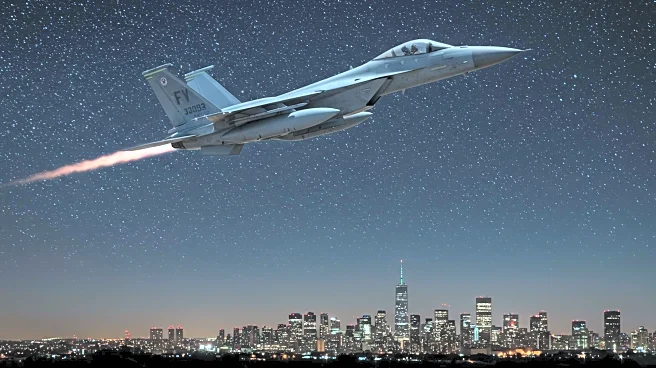What is the story about?
What's Happening?
The U.S. Air Force and Space Force have announced budget plans that prioritize weapons development while cutting civilian jobs and reducing contracting services. The Air Force budget includes a $24.9 billion increase from the previous fiscal year, focusing on procurement of Family Affordable Mass Missiles and boosting intelligence, surveillance, and reconnaissance capabilities. The Space Force budget emphasizes satellite communications and counterspace systems. However, the budgets also propose cutting over 5,700 civilian jobs and reducing spending on travel, civilian pay, and advisory services, amounting to $2.3 billion in cuts.
Why It's Important?
The budget changes reflect a strategic shift in military priorities, focusing on enhancing technological capabilities and weapons systems. This could strengthen U.S. defense capabilities and improve national security. However, the reduction in civilian jobs and contracting services may have economic implications, potentially affecting employment and local economies reliant on military bases. The cuts could also impact the efficiency and support services within the Air and Space Forces, affecting overall operational effectiveness.
What's Next?
The implementation of these budget plans will likely lead to restructuring within the Air and Space Forces, with potential impacts on workforce morale and efficiency. Stakeholders, including military personnel, civilian employees, and defense contractors, may respond with concerns or advocacy for policy adjustments. The focus on weapons development and technological advancements may lead to further investments and collaborations with defense industries, influencing future military strategies and capabilities.
Beyond the Headlines
The budget cuts raise ethical and strategic questions about the balance between military advancements and workforce sustainability. The reduction in civilian jobs may lead to discussions on the role of civilian employees in military operations and the importance of maintaining a skilled and motivated workforce. The emphasis on weapons development could also spark debates on military spending priorities and the implications for global security dynamics.















